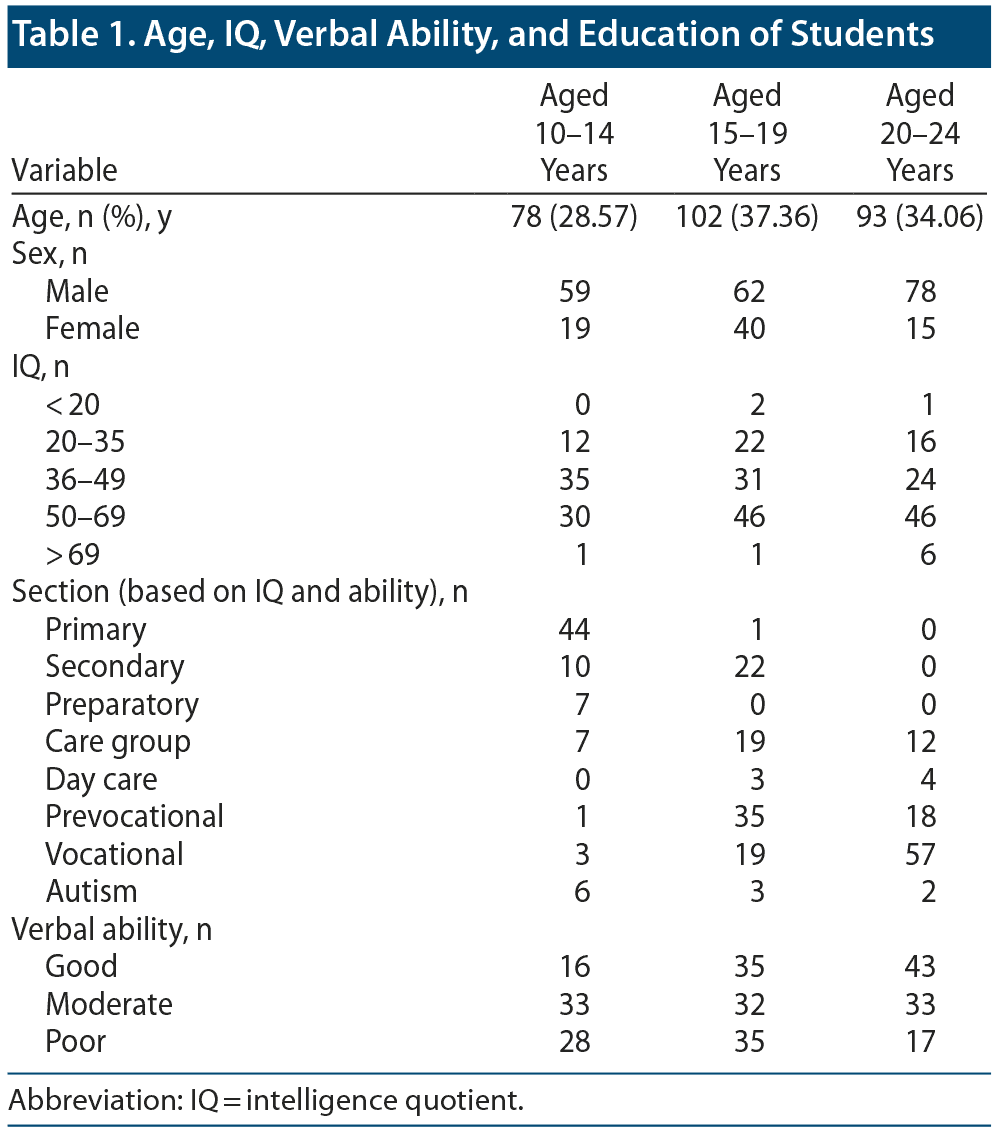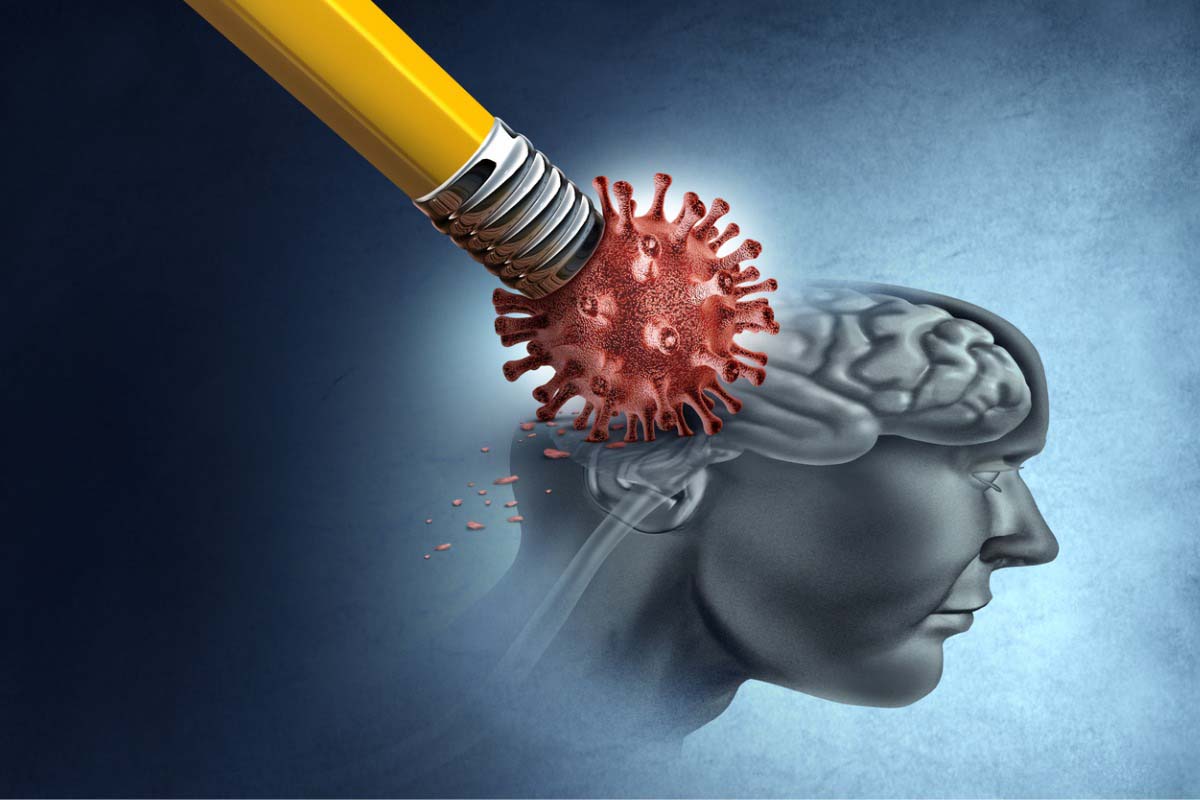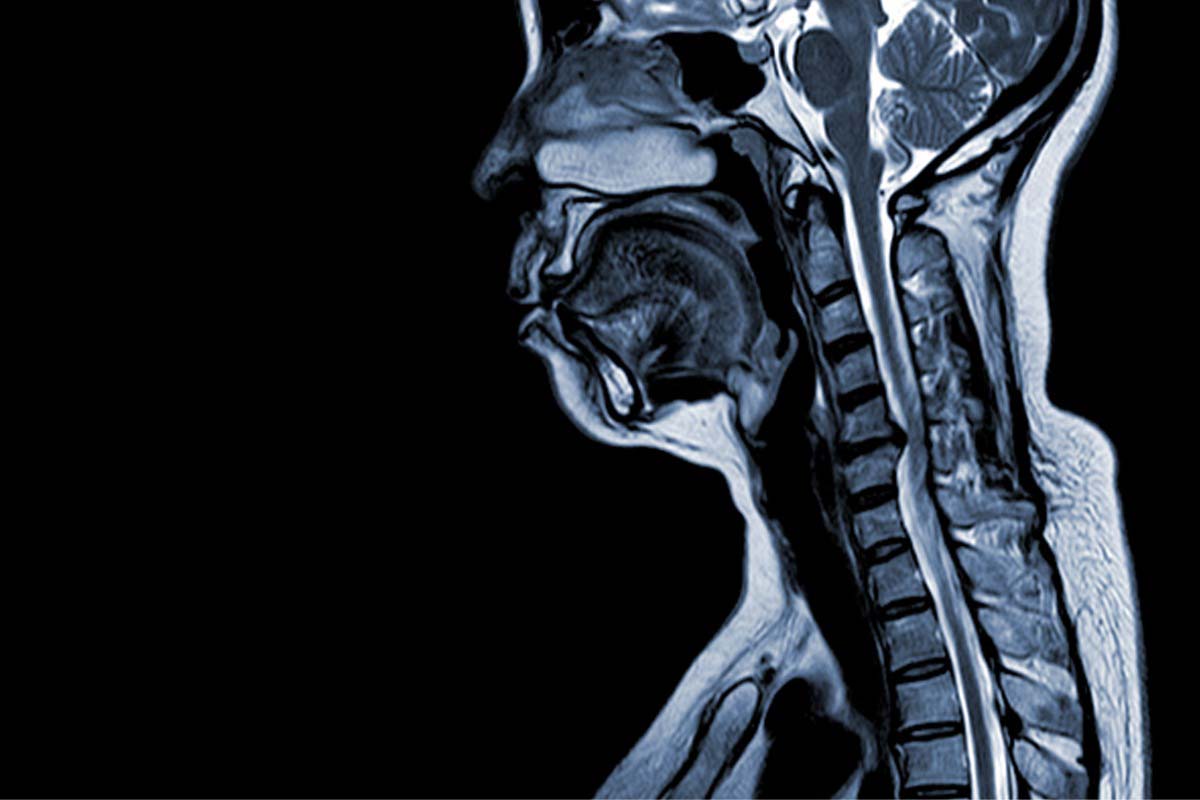
Understanding of Lockdown Among Adolescents and Youth With Intellectual Disabilities
The world is facing an unprecedented crisis in the form of the coronavirus disease 2019 (COVID-19) pandemic. Individuals with developmental disabilities have been affected by the pandemic in various ways, such as through disruptions to their daily activity schedules, being unable to meet friends, and having to stay at home all of the time. Moreover, these individuals have a high incidence of comorbid chronic illnesses.1 These comorbidities make them more vulnerable to increased complications if they contract COVID-19, raising concern for their safety.
India announced a lockdown to combat the COVID-19 pandemic on March 24, 2020. However, in the city of Chandigarh, the education department made the decision to close down all schools on March 13, 2020. The Government Rehabilitation Institute of Intellectual Disabilities (GRIID) is the premier institute in North India, wherein 452 students are enrolled in special education and vocational sections. GRIID caters to students with intellectual disabilities, autism, cerebral palsy, and multiple disabilities. The students studying at GRIID are provided a structured routine and opportunities to participate in physical activities such as sports, yoga, and music and dance classes. Many parents are able to work without having to worry about their children while they are attending GRIID. During summer vacations, all students are routinely given some homework. Since GRIID was closed due to the sudden lockdown, an attempt was made to find out if students understood the reason for the lockdown and whether they were able to follow the self-hygiene guidelines.
Methods
After 1 month of lockdown, all educators contacted students in their respective classes by telephone to find out if they knew the reason for the lockdown and whether they supported it. Parents and caregivers were also asked if students were able to follow the self-hygiene guidelines.
In total, 273 students in the age group of 10-24 years were contacted, and all responded. These students included 199 males and 74 females. Nineteen percent of the students had severe to profound intellectual disability, 32.9% were in a moderate category, 44.7% were in a mild category, and 2.9% were in a borderline category (Table 1). Various sections in GRIID are based on guidelines provided by the National Institute for the Empowerment of Persons With Intellectual Disabilities,2 in which students are placed in various sections on the basis of age, intelligence quotient (IQ), and ability. They are promoted to the next section on the basis of goals achieved in 1 year. The primary section includes younger students, who proceed to the preparatory section if they are doing well in functional academics and are ready for inclusive education. After achieving 80% of their goals, students move to the secondary section. The care group includes students with cerebral palsy who are mostly dependent for activities of daily living. Prevocational sections focus on equipping students with basic skills necessary for the vocational sections. Vocational sections include book binding, candle making, carpentry, cooking and baking, cutting and tailoring, jewelry making, masala grinding, organic farming, paper recycling, and pottery. Day care services are provided to those who are not making any progress in functional academics and would benefit from structured activities.
Results
Fifty-eight percent of the students were aware that the lockdown was due to a deadly disease, whereas 16.3% did not understand the concept of lockdown or could not answer due to low verbal ability. Forty-eight percent supported the decision of lockdown, 13% were not in favor of lockdown, and 35% did not understand the concept of lockdown. Agreement with the decision to lock down the country was not significantly correlated with IQ.
The majority of the students were able to follow the necessary instructions for self-hygiene and staying indoors after explaining the need. For 17% of students, it was difficult to get them to wash their hands, while 21% had difficulty in understanding the need to remain indoors and 23% had difficulty in complying with the need to wear a mask while going outdoors. GRIID students had participated in a clean India campaign 6 months earlier and went to neighboring markets and parks to maintain cleanliness; hence, they were aware of the importance of cleanliness and hygiene. Parents of one-fourth of the students found it difficult to get them to follow guidelines for COVID-19 prevention. Thirteen parents had concerns related to their children not following instructions, as they were unable to understand the implications.
Discussion
The present survey shows that almost three-fourths of students with developmental disabilities were able to follow instructions regarding social distancing, wearing a mask, washing hands, and remaining indoors. Given that those with developmental disabilities might disregard the precautions and that they have chronic health conditions making them more prone to COVID-19 complications, the findings of our study are encouraging.
Individuals with developmental disabilities have a high prevalence of behavioral problems that can become difficult to manage.3 Disobedience stems from having to perform a task that is above the level of their cognitive ability.4 Family members and caregivers find it difficult to manage the behavior if the individual is not complying with instructions. Communication has been found to be an important aspect in the prevention of communicable diseases.5 Despite having a short time to communicate about COVID-19, students at GRIID were better prepared, as they had participated in an earlier cleanliness campaign. Despite 40% of the students not understanding the concept of lockdown, half were willing to comply with the decision. This finding highlights the importance of communication during emergency situations for individuals with developmental disabilities.
During times of emergency, major guidelines5 focus on protection of vulnerable groups such as those with developmental disabilities. In line with these guidelines,5 to ensure that GRIID students were protected, hostels were closed and the residents (n = 25) were sent home. We found no surveys of youth with disabilities on following preventive measures in the literature.
Regular cleanliness and health-related campaigns help to build awareness about basic health-related information. Our survey found that the youth with developmental disabilities are safe with their families and are following preventive measures like others their age, though they are waiting for GRIID to reopen.
Received: August 5, 2020.
Published online: November 25, 2020.
Potential conflicts of interest: None.
Funding/support: None.
REFERENCES
1.Banks S. Chronic Illness and People with Intellectual Disability: Prevalence, prevention, and management. National Disability Services website. https://www.nds.org.au/images/LearnNDevelop/Chronic-Illness-and-People-with-Intellectual-Disability.PDF. December 2016. Accessed November 3, 2020.
2.Functional Assessment Checklist for Programming (Guidelines for Using the Checklist). National Institute for the Empowerment of Persons With Intellectual Disabilities website. http://niepid.nic.in/facp.pdf. Accessed November 4, 2020.
3.Einfeld SL, Piccinin AM, Mackinnon A, et al. Psychopathology in young people with intellectual disability. JAMA. 2006;296(16):1981-1989. PubMed CrossRef
4.Bierbaum LJ, Henrich CC, Zigler EF. Disobedient behaviours in children with intellectual disability. J Intellect Dev Disabil. 2005;30(2):115-119. CrossRef
5.Bennett B, Carney T. Planning for pandemics: lessons from past decades. J Bioeth Inq. 2015;12(3):419-428. PubMed CrossRef
aDepartment of Psychiatry, Government Medical College and Hospital, Sector 32, Chandigarh, India
bGovernment Rehabilitation Institute of Intellectual Disabilities, Sector 31, Chandigarh, India
*Corresponding author: Priti Arun, MD, Department of Psychiatry, Government Medical College and Hospital, Sector 32, Chandigarh, 160030, India ([email protected]).
Prim Care Companion CNS Disord 2020;22(6):20br02777
To cite: Arun P, Chavan BS. Understanding of lockdown among adolescents and youth with intellectual disabilities. Prim Care Companion CNS Disord. 2020;22(6):20br02777.
To share: https://doi.org/10.4088/PCC.20br02777
© Copyright 2020 Physicians Postgraduate Press, Inc.
Enjoy this premium PDF as part of your membership benefits!






